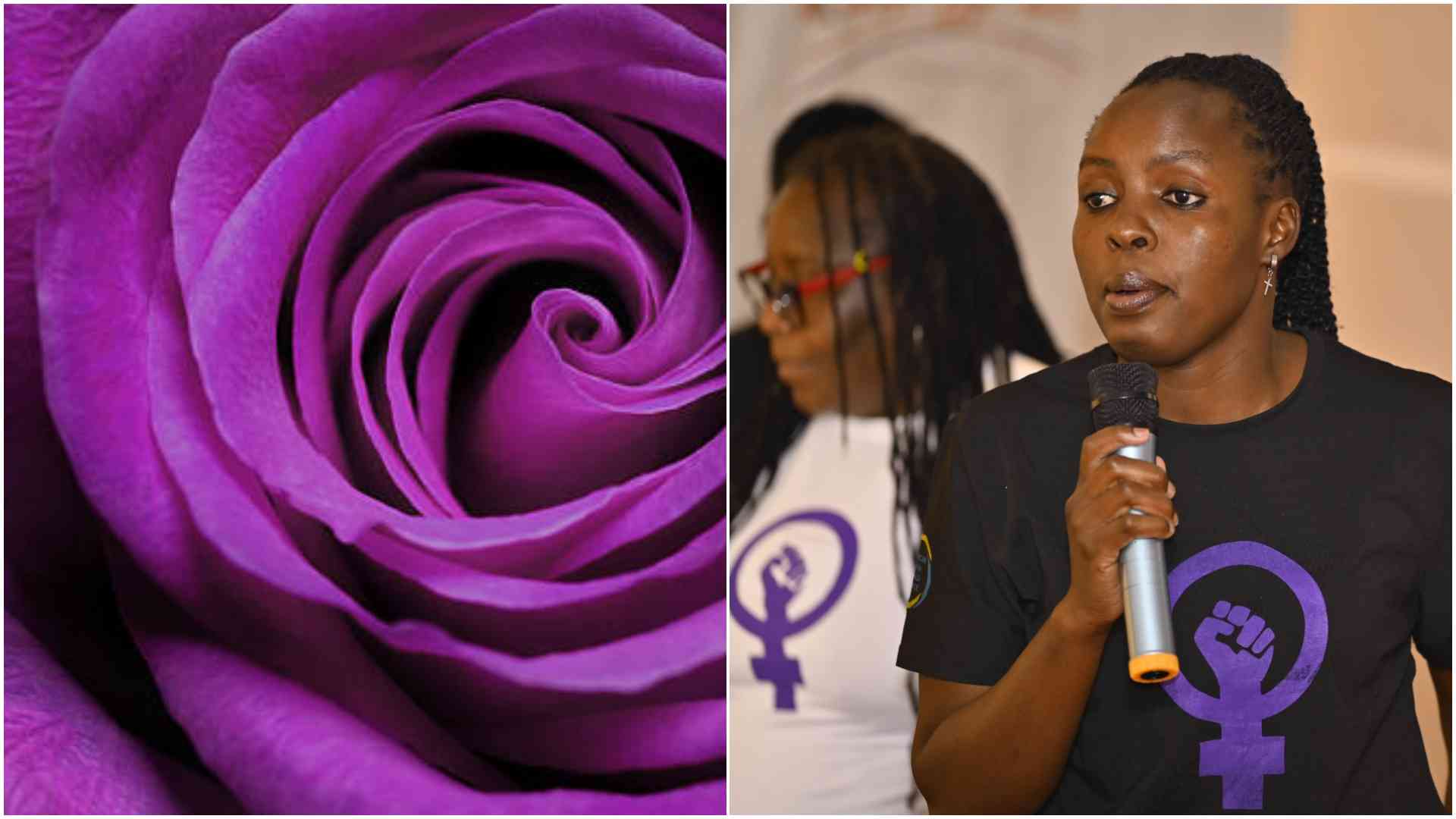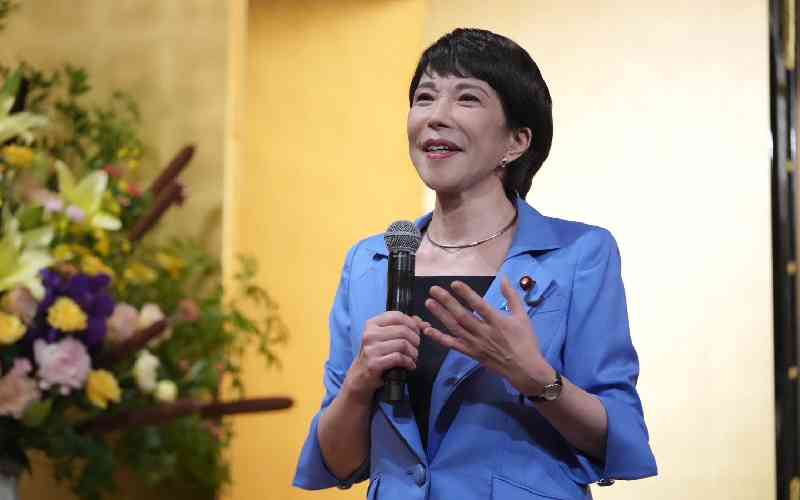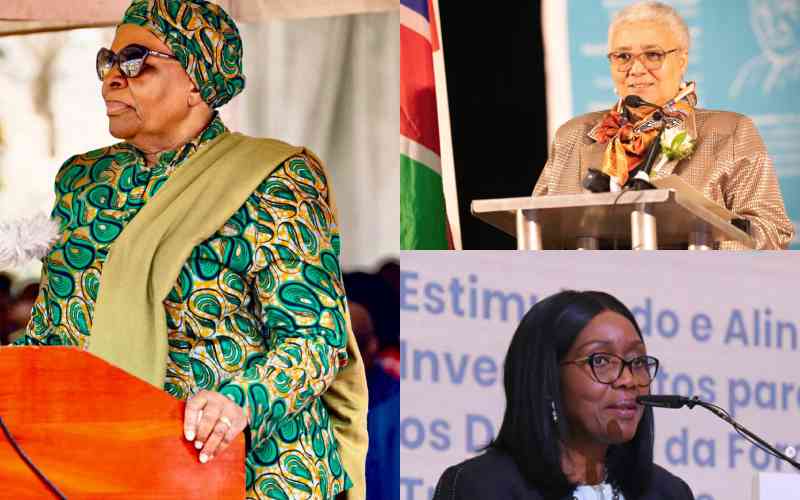
For the flower girl – a name she earned in Parliament for her good looks, easy demeanor and graceful nature – Joyce Wanjala Lay, Taita Taveta woman representative, does more than show her better side on the camera and make quorum during Parliament proceedings.
In fact during one debate, she gave an emotional speech on the frustrations she went through when she had to use a surrogate mother to give birth to her only child as she seconded a motion on assisted reproduction or in-vitro fertilisation (IVF) bill 2014 – currently in its amendment stage – sponsored by Mbita MP Millie Odhiambo-Mabona.
She urged Parliament to enact the proposed law that seeks to formalise alternative modes of conception therefore allowing women who give birth through the IVF process to be recognised as legitimate mothers.
Besides legitimising mothers, if the bill is enacted into law the cost of IVF will go down since public hospitals will be required to offer IVF services and access to adequate comprehensive reproductive health services.
Including infertility care, as a basic human right regardless of the economic circumstances in which individuals are born into as declared by the United Nations. This will hopefully help prevent people from abusing and commercialising the process.
Aside from beauty, Joyce Lay exudes strength and agility. Oblivious of the attention she demands as she wears her eminence lightly, she sits across from me for this rare 20-minute interview after warmly greeting and apologising profusely that she cannot stay for long for she does not want to miss the First Lady's opening remarks at the conference she is there for.
She is measured, calm and guarded, even threatening to pull a 'Moses Kuria' if the interview gets too personal as we chat about everything girls would talk about. There is a glint of pride in her eye when she mentions, ephemerally at the end of the interview, that her son has just turned four.
"I had to adopt my own baby, a process that took almost four years since the law does not recognise surrogacy. The current IVF law states that the woman who gives birth is the mother of the baby and it is her name that appears on the child's birth certificate.
Period." Says the mother to four-year-old Terrence Lay.
However, Hon Joyce was not born barren. "I was a young mother at 19 following a love affair with a schoolmate forcing me to drop out of school but later applied at a private school to sit for my KCSE. My son then passed away at the age of two through yellow fever," she says and admits to have attempted suicide following the devastating experience.
After sometime, she started experiencing pains in her lower abdomen prompting her to visit the doctor. "The doctor, suspecting I had cancer of the cervix, suggested I go through a corn biopsy," she narrates of the painful procedure.
Even though she was happy that the result was negative of cancer, the pain persisted prompting a second visit to the doctor who found out that her fallopian tubes were blocked, a complication arising from the prior surgery.
Permanent Solution
"A second surgery was performed but I would now bleed without warning, prompting my rush to the ICU every other time," she recalls of even how her now ex-husband, William Lay, stood by her when she was an embarrassment.
"When I could no longer bear the bleeding, I, together with my now ex-husband - whom she met by chance at an event to honour the 1998 bomb blast victims - sought a permanent solution; hysterectomy – a procedure to remove my womb and consequently shatter all my hopes of ever carrying a baby," she says of the difficult 2008 decision.
The healing process was an uphill task even as she agonised on whether to remain silent about her condition or talk about it. "I struggled with the central difficulty associated with infertility - primary or secondary; the acute, private distress that transforms into a harsh, public stigma with complex and devastating consequences," she reveals.
Understanding that infertility is a shared responsibility, she got friends who understood her and talked her heart out. As they say, "A problem shared is a problem solved". A friend advised that since she had her ovaries intact, she should get a surrogate mother.
The process of identifying a surrogate mother and beginning the IVF procedure kicked off in 2009. After eliminating the numerous offers due to weight and age issues, she was lucky to find a friend who fit the bill to be her surrogate mother, for free.
The married mother of two had the conversation with the family and when they were in agreement with the husband that she would carry Ms Joyce's baby, both women were put on treatment.
Legal agreement
"As the doctor at the Nairobi IVF center counselled us, he kept reminding us of the fact that only 52 per cent are successful at their first trial. He told us of people who had tried up to 15 times," she said adding that the sessions cost at least Sh350,000 per treatment. She was lucky that her first trial was very successful.
Joyce and her friend signed a legal agreement with clear cut conditions. Joyce says she took good care of her friend revealing she attended all hospital visits and made sure she was comfortable.
It was at the point when the surrogate mother was to hand over the baby as soon as she gave birth that all hell broke loose. She realised that the law does not provide for unique cases such as surrogate motherhood.
Her son had to bear the name of his surrogate mother on his birth certificate and Joyce had to then go through the legal process of adopting her own son for her name to appear on his birth certificate.
"While, I had the option of going through the back door to have my name appended as the mother on my son's birth certificate, I had declared leadership and wanted to do it the right way," she says of the adoption journey that has taken her almost four years.
It was then that she was convinced that she had been put in this leadership at a time like this – that no woman would have to go through the pain of adopting her own child, hence the IVF bill.
Born and bred in a small village in Mwatate called Mariwenyi, Joyce says she often went without food and wore her first pair of shoes in Form One and had only one wash-and-wear dress to her name.
"Do not even ask if I had a panty!" she says. Her policeman dad was often away and whenever he was home, he would quarrel with her mother frequently.
Joyce overcame the challenges of her upbringing to become a role model for girls in her county and one of the most vocal female legislators in the 11th Parliament.
Role model
Besides that, she has taken up the role of Merck's goodwill ambassador that through the 'More than a Mother' campaign seeks to create awareness on infertility.
"In as much as infertility is talked about in hushed tones in African culture, with childless women still suffering discrimination, stigma and ostracism, we need to understand that infertility affects men and women equally with approximately one-third of cases of couple infertility due to male factors, one-third to female factors and one-third relating to a combination of male and female factors or having no identifiable cause," she says.
Her advice is for sexually active people to go for regular checkups for early detection. Research conducted by Merck – the world's oldest pharmaceutical and chemical company founded in 1668 and a leading company for innovative and top-quality high-tech products in healthcare, life science and performance materials – has shown that in Sub-Saharan Africa, infertility is caused by infections in over 85 per cent of women compared to 33 per cent worldwide, which emphasizes the importance of infertility prevention programs in Africa.
Further, World Health Organisation (WHO) data, shows that one in every four couples in developing countries suffer from primary or secondary infertility.
 The Standard Group Plc is a multi-media organization with investments in media
platforms spanning newspaper print
operations, television, radio broadcasting, digital and online services. The
Standard Group is recognized as a
leading multi-media house in Kenya with a key influence in matters of national
and international interest.
The Standard Group Plc is a multi-media organization with investments in media
platforms spanning newspaper print
operations, television, radio broadcasting, digital and online services. The
Standard Group is recognized as a
leading multi-media house in Kenya with a key influence in matters of national
and international interest.










